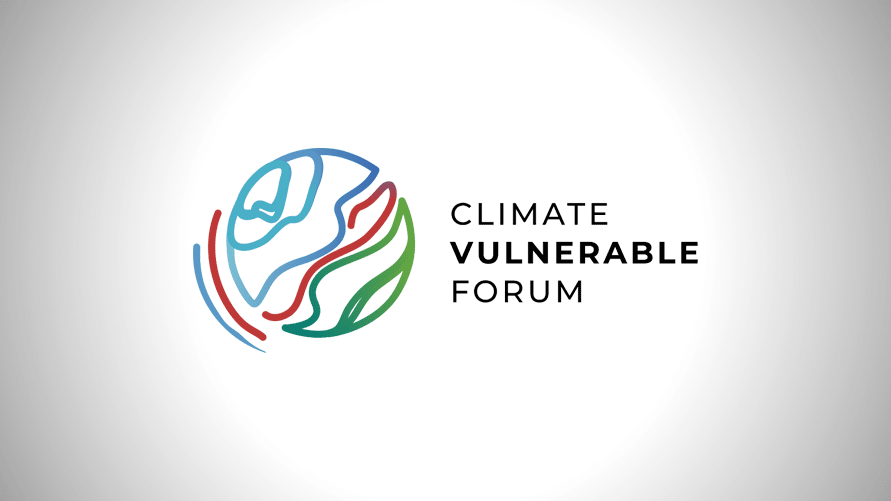Race to Zero Dialogue on Climate & Health
Thank you, I’m so happy to be here and especially to hear the earlier remarks by our distinguished speakers that, you know, the main thrust of what I’ve always advocated for is disability and mental health and really bringing that right into the conversation, and seeing the political mandate for it, is wonderful.
As the Thematic Ambassador for the 1.2. billion people that are existing in the 48 countries of the Climate Vulnerable Forum, it’s really even more important to understand how the health impact, particularly for the most vulnerable groups within this population are impacted. And, in addition to all of that, the infrastructure that exists, the health policies that exist, the health programs that exist–that is already not the most robust and may have a lot of gaps. So what often happens is, for vulnerable groups, they who were already sort of falling through the cracks and are even more likely to become even more marginalized.
Because along with the fact that groups, which I strongly advocate for, a lot of the times we talk about issues such as disabilities in a very concrete set, disabilities that are easily understood, easily recognized–we have steps for that. But a lot of the hidden issues, such as those with communication issues, those with autism, those with anxieties. We do not have the right preparations for it. And we don’t always understand how they’re interpreting the information that they are coming across, how they’re experiencing after they have been, sort of, through a disaster kind of situation, such as if they have been displaced. They do not have the support mechanisms.
In the recent years we’ve seen, especially due to the pandemic, is when you have these vulnerable groups and they don’t have the support mechanisms, you don’t have health infrastructure, you don’t have the support persons that they need. They’ve lost their family members, they’re experiencing additional challenges that, how you would reach them is very dependent on how well you have planned. Especially appreciate Mr Sy’s mention of the fact that it needs to be multi sectoral and multi dimensional, and health-it’s really surprising- how health has not always been a very concrete part.
As far as when we talk about countries that are very vulnerable like Bangladesh and have very robust community-based health systems, and, due to our frequent and natural disasters, have a very good community-based mechanism to address disasters like floods and cyclones. However, we very soon we naturally realize that when it came to the issues of disability, when it came to issues of mitigating potential mental health conditions, we weren’t as prepared. And certainly, the political support for it is necessary, but a lot of the times we don’t really know what would work.
So having a good plan of action that exists within the system already has gone a long way of, kind of, being prepared when you are in a situation where you are extra vulnerable due to climate change or for populations where all your regular infrastructure is missing. So: involving the community very early on in the preparedness, having stakeholders involved very early on and ensuring that they understand all of the scenarios and what they need to do.
We’ve, in Bangladesh, certainly have benefited a lot, and we are slowly evolving to ensure that issues like, not just those with health conditions but also reducing the crisis when it comes to the experiences and that can ultimately increase the vulnerability for anxieties and stress. Preparing for that, all of us, we realize, especially with this pandemic, that our emotional vulnerability increases. So, making sure there’s the support mechanisms that are there, that are multi-varied and not just reliant on the experts. But how we can help each other as a community comes from a good understanding of what those needs are, what are the things to do, what are the things not to do. And, what are the cultural sort of support mechanisms that can be maximized.
For many cultures that are strongly religious or have good social networks: it is important to empower them with the right information so that we can address misinformation that comes across, or we can also make the communities much more resilient and be more helpful to one another.
Increasing the capacity of each individual, and each community, I think, is a key to ensuring greater resiliency. It’s a key to creating greater support mechanisms, along with having an infrastructure that fits in with each country. And as much as we’d like to say that there is a universal mechanism and ideas, they’re really aren’t–we don’t really know what would work best. And it has to -in many ways- be very specific to each community and each country.
One of the things that is very helpful is to be able to share that information. To learn from our mistakes or failures, as well as success stories and to emulate that in other countries that have sort of similar support mechanisms or have similar challenges. And I think in many ways we don’t have enough of that, because we’re sort of learning as we go but we often monitor what has worked, and not worked, and we don’t share. And I think conversations, and discussions such as this, would be a wonderful opportunity to share some of those experiences and see what works so that we do better.





